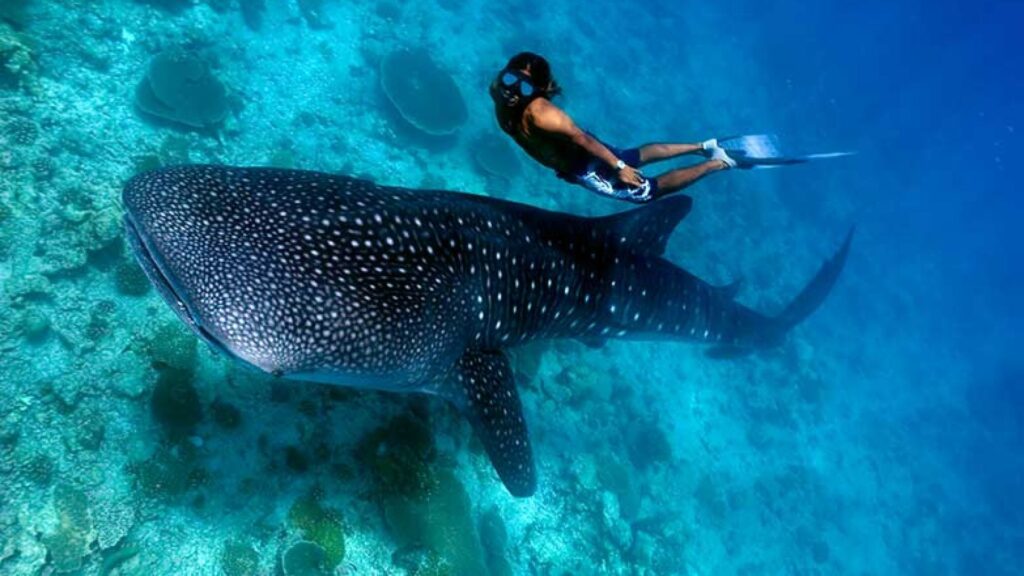Whale Sharks in Maldives – A Complete Eco-Tourism Guide

The Maldives, with its crystal-clear waters and vibrant marine life, is one of the best places in the world to encounter whale sharks—the gentle giants of the ocean. These magnificent creatures attract divers, snorkelers, and eco-tourists from around the globe.
In this complete eco-tourism guide, we’ll cover everything you need to know about swimming with whale sharks in the Maldives, including the best spots, responsible tourism practices, and conservation efforts.
Why the Maldives is a Top Destination for Whale Shark Encounters
The Maldives is home to a year-round population of whale sharks, making it one of the few places where you can see them consistently. The South Ari Atoll Marine Protected Area (SAMPA) is particularly famous for frequent sightings.
Best Time to See Whale Sharks in the Maldives
While whale sharks can be spotted year-round, the peak season is from May to December, when plankton blooms attract these filter feeders. However, sightings are common even outside these months.
Top Locations for Whale Shark Encounters
- South Ari Atoll (SAMPA) – The most popular spot, with high chances of sightings.
- Maamigili (Rangali Island) – Known as “Whale Shark Point.”
- Dhigurah Island – A great base for whale shark excursions.
- Hanifaru Bay (Baa Atoll) – A UNESCO Biosphere Reserve, famous for manta rays and occasional whale sharks.
Responsible Whale Shark Tourism – Eco-Friendly Practices
Whale sharks are vulnerable (IUCN Red List), so responsible tourism is crucial. Follow these guidelines:
✅ Maintain a Safe Distance – Stay at least 3 meters (10 feet) away to avoid stress.
✅ No Touching or Chasing – Let them move freely.
✅ Avoid Flash Photography – Bright flashes can disturb them.
✅ Choose Eco-Certified Operators – Support sustainable tour providers.
✅ Use Reef-Safe Sunscreen – Protect marine ecosystems from harmful chemicals.
How to Swim with Whale Sharks – Tips for an Unforgettable Experience
- Snorkeling is Best – Whale sharks stay near the surface, making snorkeling ideal.
- Move Slowly & Calmly – Sudden movements can scare them away.
- Follow Your Guide’s Instructions – They know whale shark behavior best.
- Respect Their Space – Never block their path.
Conservation Efforts in the Maldives
Several organizations, including the Maldives Whale Shark Research Programme (MWSRP), work to protect these gentle giants. You can contribute by:
- Reporting sightings to research programs.
- Supporting eco-friendly resorts and tour operators.
- Spreading awareness about whale shark conservation.
Final Thoughts – A Must-Do Maldives Experience
Swimming with whale sharks in the Maldives is a bucket-list experience that combines adventure, eco-tourism, and conservation. By following responsible practices, you help ensure these majestic creatures thrive for future generations.
Ready to dive in? Book a sustainable whale shark tour and witness one of nature’s most incredible marine spectacles!
